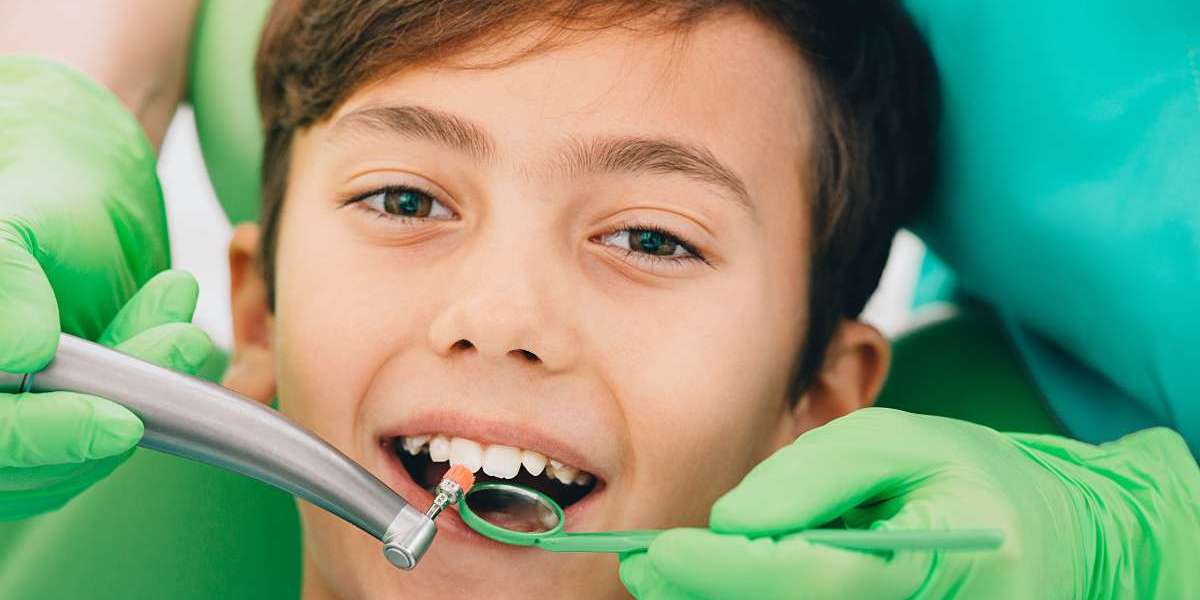Oral health is a vital component of every child’s overall wellbeing. In the UK, dentistry for children and teens is an established and essential part of the NHS and private dental healthcare systems. Ensuring your child receives the right dental care early on helps prevent common oral issues and sets them on a path to lifelong dental hygiene. Whether you're searching for a pediatric dentist near me, looking into children’s dental cleaning, or exploring your options for dentistry for children, this comprehensive guide will help you make informed choices.
Understanding Dentistry for Children and Teens
What Is Paediatric Dentistry?
Paediatric dentistry (often spelled pediatric dentistry in American English) focuses on the oral health of infants, children, adolescents, and those with special needs. UK-based paediatric dentists undergo specialist training after their general dental education, allowing them to provide expert care for young patients in both NHS and private settings.
Why It Matters
Tooth decay is one of the most common preventable diseases in children in the UK. According to Public Health England, nearly 1 in 4 five-year-olds has experience of tooth decay. Dentistry for children and teens goes beyond filling cavities – it includes preventative education, fluoride treatments, dental cleanings, and early orthodontic assessments.
Key Services in Children’s Dental Care
Let’s explore the primary services you can expect when seeking dentistry for children and teens.
1. Children’s Dental Cleaning
Regular children’s dental cleaning is crucial from the moment their first teeth appear. Cleanings help remove plaque build-up that home brushing might miss, reducing the risk of cavities and gum disease.
NHS Guidelines recommend:
First dental visit by age 1
Check-ups every 6 months (or as advised by your dentist)
Fluoride varnish applications from age 3 onwards
Regular dental cleanings at a young age teach children the importance of oral hygiene while keeping their gums and teeth healthy.
2. Preventive Treatments
Paediatric dentists also offer:
Fissure sealants: A protective coating applied to the chewing surfaces of back teeth.
Fluoride varnish: Strengthens enamel and prevents decay.
Oral hygiene instruction: Educates parents and children on brushing, flossing, and healthy diets.
3. Orthodontic Evaluation
Early orthodontic assessments are usually done by age 7. Dentists look for issues such as overcrowding, jaw misalignment, or bite irregularities, even if all permanent teeth haven’t erupted yet.
4. Treatment of Dental Trauma
Children are prone to accidents that may damage teeth. A trained paediatric dentist is equipped to handle injuries, whether it involves a chipped tooth, a dislodged tooth, or an emergency extraction.
How to Find a Pediatric Dentist Near Me
When searching for a pediatric dentist near me, consider these tips to find the right care in the UK:
Use NHS and GDC Resources
NHS Find a Dentist Tool helps you locate local NHS dental practices offering children’s services.
The General Dental Council (GDC) maintains a public register. Look for dentists with the 'Specialist List in Paediatric Dentistry'.
Look for Practices with Child-Friendly Environments
Many private clinics in London, Manchester, and Birmingham now offer child-centric interiors with toys, calming colours, and screens playing cartoons during treatment. This can ease dental anxiety.
Consider Specialist Paediatric Clinics
In major cities, you’ll find clinics such as:
Evelina London Children’s Hospital Dental Service
Great Ormond Street Hospital Dentistry Unit
Bupa Dental Care practices with child specialists
Differences Between NHS and Private Paediatric Dentistry in the UK
Understanding the difference between NHS and private offerings is key when budgeting for your child’s oral care.
NHS Paediatric Dental Care
Free for children under 18 (or under 19 if in full-time education)
Offers basic preventive and restorative treatments
Long waiting times in some areas
Limited availability of cosmetic or advanced orthodontic services
Private Paediatric Dental Care
Offers extended services, including cosmetic fillings, white crowns, and interceptive orthodontics
Access to paediatric dental hygienists and therapists
More flexible appointment scheduling
Shorter wait times
Common Dental Problems in Children and Teens
Being informed about the most common oral issues in young patients can help you take preventive action.
Tooth Decay
Caused by sugary foods and poor brushing habits. Early decay often shows as white spots or yellowing on teeth.
Gum Inflammation (Gingivitis)
Red, swollen gums that may bleed. Often reversible with improved oral hygiene.
Dental Trauma
Knocks, chips, and falls are common in toddlers and sporty teens.
Malocclusion
Improper bite or misaligned teeth often require orthodontic correction.
Thumb Sucking and Dummy Use
Prolonged habits may cause bite problems or speech issues.
How Parents Can Support Oral Health at Home
Creating a strong foundation of oral care begins at home.
For Young Children
Brush twice daily with a smear of fluoride toothpaste (1000 ppm fluoride)
Never allow a child to fall asleep with a bottle of milk or juice
Use sugar-free medicine where possible
Avoid frequent snacking between meals
For Teens
Supervise brushing until at least age 7–8
Encourage brushing after meals and before bed
Promote mouthguard use during sports
Limit energy drinks and sugary snacks
Making the First Dental Visit a Positive Experience
First impressions last, especially for children. Here’s how you can ease them into their dental routine:
Before the Visit
Talk positively about the dentist
Read storybooks about dental visits
Roleplay at home with a toothbrush and toy
During the Visit
Let the child meet the dentist without pressure
Allow them to sit in the dental chair and become familiar with instruments
Bring a comfort toy or blanket
Tip: Avoid using negative words like “pain,” “injection,” or “drill.”
Teenagers and Oral Health: Special Considerations
Teens face unique dental challenges as they transition into adulthood.
Orthodontics
Many teens undergo braces or Invisalign treatments to correct alignment. NHS braces are available under strict clinical guidelines, but private options may offer more flexibility and aesthetic solutions.
Wisdom Teeth
Late teens may experience issues with wisdom teeth eruption, often requiring monitoring or removal.
Lifestyle Habits
Teens are more likely to experiment with tobacco, vaping, or energy drinks—all of which negatively impact oral health. Open discussions and education are essential.
The Importance of Routine Check-Ups
Routine dental visits for children and teens are not just for cleaning. They help with:
Monitoring growth and development of the jaws and teeth
Catching decay early
Reinforcing oral hygiene education
Building a lifelong habit of regular dental care
In the UK, dentists typically recommend check-ups every six months, though this may vary depending on individual needs.
Final Thoughts: Investing in Lifelong Oral Health
Whether you’re looking for dentistry for children, exploring options for children’s dental cleaning, or Googling a pediatric dentist near me, what truly matters is proactive, consistent care. Prioritising your child’s dental health today lays the foundation for confident smiles and strong oral hygiene habits well into adulthood.
Takeaway Points
Dentistry for children and teens is a cornerstone of preventive health
Regular cleanings and early intervention reduce future dental issues
NHS offers free basic dental care for children, but private options provide enhanced services
Starting early and creating positive experiences makes all the difference
Frequently Asked Questions (FAQs)
Q1: At what age should I take my child to the dentist?
A: The NHS recommends that your child sees a dentist by their first birthday or within six months of the first tooth erupting.
Q2: How much does children's dental cleaning cost privately in the UK?
A: Private cleanings range between £35–£85 depending on the clinic and location.
Q3: What’s the difference between a general and a paediatric dentist?
A: A paediatric dentist has additional training and expertise in treating children, especially those with complex needs or dental anxiety.
Q4: Can my child get braces through the NHS?
A: Yes, if they meet clinical criteria under the Index of Orthodontic Treatment Need (IOTN). Otherwise, private treatment is an option.








